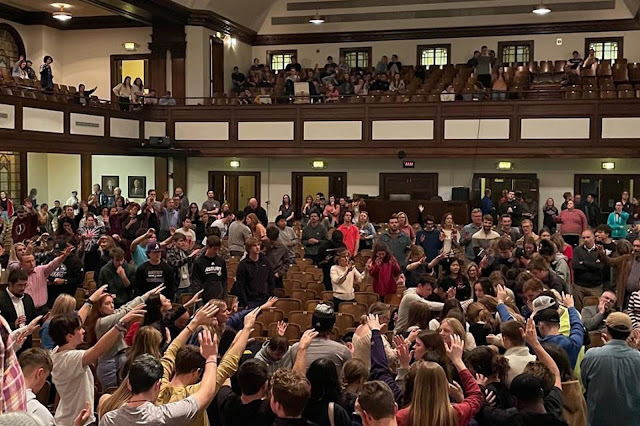Published February 20, 2023
The tradition I grew up in is known as revivalism. Revivalism doesn’t only seek revival to come when God sovereignly wills it, in some ways, it seeks it every week. A lot of this began in the 19th century with a fellow named Charles Finney. Finney taught that the goal of a minister was to create an emotional crisis in every service, that would leads sinners and saints to an altar call of tears of sinners prayers or rededication. In the 190 years since Finney, church leaders have found more and more ways to try to create those crises: powerful music, trance-like atmospheres, guilt-tripping people, scaring people, bringing people to tears with stories, lighting and stage techniques learnt from Broadway, Nashville and Hollywood. And like Finney, people who successfully use these techniques will have results in their churches. People are moved, choked up, touched, maybe shamed. Commitments and rededications follow, and they conclude that because they are feeling their religion so much more deeply than before, that this is truly a work of God; it is true revival. They feel like they’ve been woken up, renewed. And who doesn’t want to feel the things of God more deeply? Isn’t this true revival or renewal?
Sometimes it is, sometimes it is not. We really only know as we watch the fruit of those meetings and services. Sadly, most often we find something people don’t expect. It’s the principle of easy come, easy go. The quicker and more sudden those religious feelings were evoked, the shorter they seem to last, after the service is over and the music has stopped. Those feelings that felt so powerful during the service become more and more of a distant memory. As they fade, some Christians try the futile approach of trying to get those feelings back, hoping that another church service or song or sermon will ignite those tears or that ecstasy again. When it doesn’t, they’re confused, a bit perplexed, perhaps discouraged. Those commitments they made, which they made sincerely at the time, seem to have less and less hold on them. Weeks or months later, they remember with some guilt and some regret that they aren’t keeping those commitments anymore.
Christians of all stripes and types speak about revival, the importance of revival, the need for revival. Churches pray for revival. I think if we asked the average Christian, would you like to see revival, everyone would say, yes. But what exactly is it? How would you know if it occurred?
See also:
